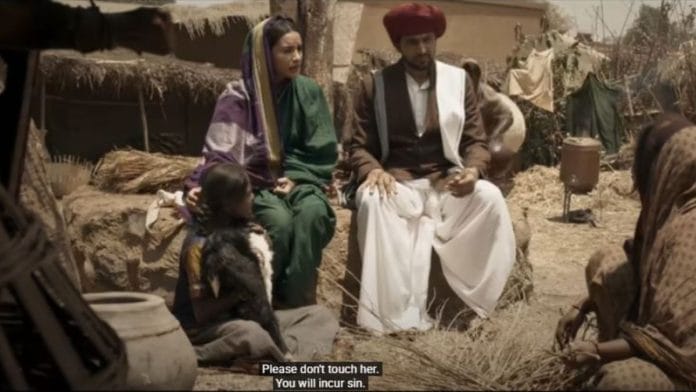New Delhi: Anant Mahadevan, director of the yet-to-be-released Phule, has dismissed accusations by Brahmin organisations in Maharashtra that the film tarnishes their community’s image.
The Hindi biographical film, starring Pratik Gandhi and Patralekhaa, explores the lives of social reformers Jyotirao Phule and Savitribai Phule.
Originally set for 11 April 2025, the film’s release has been postponed to 25 April. Phule highlights Jyotirao and Savitribai’s fight against caste and gender injustice in 19th-century India, and their work in education, including setting up the first school for girls in Pune in 1848.
Hindu Mahasangh, a Maharashtra-based organisation, was one of the first to express concerns against the film.
“We don’t want the fabric of society to be disturbed by artistic freedom. There should be no unrest within communities due to a film,” spokesperson Manoj Tare told The Print.
According to Hindu Mahasangh, the trailer of Phule was degrading to the Brahmin community. Tare pointed to a scene in the trailer where a Brahmin boy throws cow dung at Savitribai.
In response, Mahadevan defended the historical accuracy of the scene, referencing a drama directed by Shyam Benegal, Bharat Ek Khoj.
He noted that one episode of the series also the cow dung incident.
“It’s in the Doordarshan archive, a government organisation,” he stated. “Did you object to that? No. So why object to this? Is it for political gain, or is there genuine doubt in your mind? I don’t know.”
CBFC cuts dialogues
The Central Board of Film Certification (CBFC) requested the filmmakers to make several changes, including removing a voiceover that addresses the caste system.
The list of cuts demanded by the CBFC has now been made public, which concerned Mahadevan, who said, “It’s supposed to be confidential, I don’t know who leaked it.”
According to the document, CBFC has insisted on removing terms like ‘Mahar’, ‘Mang’, ‘Peshwai’, and ‘Manu system of caste’. Additionally, the filmmakers were asked to modify certain dialogues. For example, the line “Jahan shudro ko…jhadu bandhkar chalna chahiye (Where Shudras must walk with a broom tied behind them)” must be changed to “Kya yahi hamari… sabse doori banake rakhni chahiye (Is this why we… must be kept at the greatest distance?)”, and “3,000 saal puraani…gulaami (3,000 years of slavery)” should be altered to “Kai sal purani hai (It’s been going on for many years)”.
Mahadevan holds no grudges against the CBFC.
“I don’t blame them. They are sitting on hot bricks. Every time a film portrays a historical figure, someone, somewhere in the country protests, and the CBFC gets blamed. So, they’ve started playing it safe,” the director explained.
Mahadevan found it ironic that a film about two fearless individuals who fought societal injustices is now being asked to tread carefully.
“I can’t sit back and play it safe,” he said. “I made changes to the dialogues that I felt didn’t affect the story or diminish its impact. But I haven’t cut any scenes.”
“People should voice their concerns, but they shouldn’t turn it into a political agenda or use it for publicity,” he added.
Also read: Brahmins didn’t always wear the sacred thread. They adopted it at the start of the Common Era
No Phule without Brahmins
Mahadevan also addressed Anand Dave, a representative of Hindu Mahasangh, who has been vocal about his concerns regarding Phule.
The filmmaker is hopeful that Dave will retract his statements after seeing the full film.
“People come to inferences in our country even before knowing the full picture. My sympathies are with Mr Anand Dave because he has seen only snippets from the trailer and he has jumped the gun and has come to the conclusion that Brahmins are not portrayed in the film,” Mahadevan said.
Mahadevan added that Phule portrays the Brahmin community positively, acknowledging their crucial role in the educational movement led by Jyotirao and Savitribai Phule. “Without the Brahmins, there would be no Phule,” he added, noting that he himself comes from a Brahmin background. “But, in every community, there are those who resist progress, and we should be critical of that as well.”






